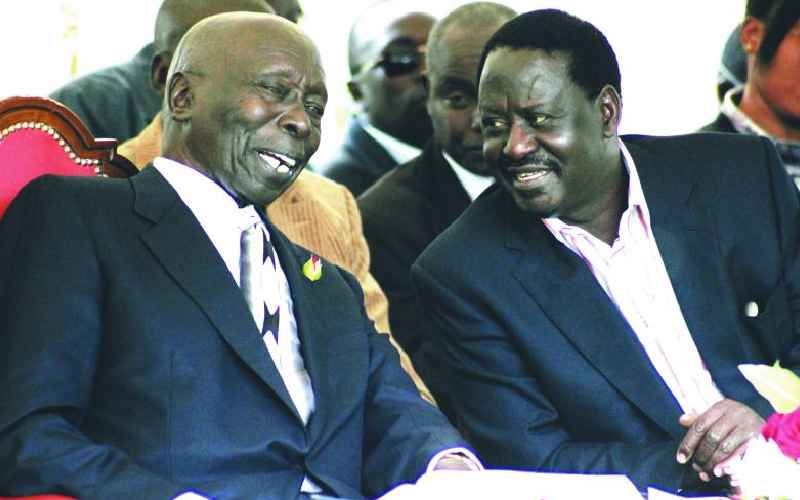Recycled Reforms: The Kenya Political Strategy from 1997 to 2024
The formation of a broad-based government in Kenya in 2024, following widespread protests against the Finance Bill, mirrors an earlier strategy employed by president Moi during the 1997 political crisis. Both instances highlight the Kenyan political elite’s recurring tendency to address public unrest and opposition through temporary power-sharing arrangements, often at the cost of genuine systemic reform

In 1997, Kenya was gripped by demands for political reform, as citizens expressed widespread dissatisfaction with President Daniel arap Moi's authoritarian rule. The protests were fueled by the government’s refusal to implement constitutional changes that would curb executive powers and enable free and fair elections. Peaceful demonstrations organized by the National Convention Executive Council (NCEC),a coalition of opposition parties and civil society, were met with harsh crackdowns by security forces. Ethnic clashes, particularly in the Rift Valley, further exacerbated tensions, leading to mass displacement and numerous casualties.
To address the unrest and ease mounting international pressure, Moi’s government engaged opposition leaders through the Inter-Parties Parliamentary Group (IPPG). The IPPG negotiated limited electoral reforms, including repealing restrictive laws and ensuring fairer electoral processes. While these reforms temporarily calmed the political climate ahead of the December 1997 elections, they were widely criticized as superficial, designed to placate critics rather than deliver substantial change.
Fast forward to 2024, Kenya witnessed another wave of protests, this time led by the tech-savvy Gen Z generation. The demonstrations were initially triggered by opposition to the Finance Bill, which proposed steep taxes on essential goods, personal income, and digital transactions. However, the movement quickly evolved into broader calls for economic reform, reduced corruption, and government accountability.
Social media platforms became the epicenter of mobilization, creating a decentralized movement that transcended traditional political structures. Raila Odinga, a veteran of Kenyan protests, offered symbolic support to the young protesters, praising their courage while refraining from direct participation due to his bid for the African Union Commission chairmanship.
As unrest grew, President William Ruto sought to stabilize the situation by initiating talks with opposition leaders, including Odinga. These discussions culminated in the creation of a broad-based government, incorporating opposition figures into key roles. This arrangement temporarily diffused tensions but sparked debates about its implications for political accountability.
The broad-based government of 2024 closely parallels the IPPG reforms of 1997. Both approaches were born out of political crises and relied on bringing opposition figures into the fold to project inclusivity. In each case, the strategy provided temporary relief but left deeper systemic issues unresolved.
- Superficial Reforms: Just as the IPPG reforms were criticized for their limited scope, the 2024 power-sharing arrangement has been seen by some as a superficial solution that diluted the opposition’s influence while maintaining the government’s grip on power.
- Political Co-optation: Critics argue that both instances reflect a pattern of political co-optation, where opposition leaders are absorbed into the ruling establishment, weakening their ability to challenge systemic problems effectively.
- Erosion of Public Trust: In 1997, the IPPG reforms failed to address the root causes of Kenya’s governance challenges, leading to prolonged dissatisfaction. Similarly, the broad-based government of 2024 has left many protesters feeling their demands for economic and political reform remain unmet.
While broad-based government arrangements can temporarily ease tensions, they often fail to deliver the transformative change demanded by citizens. The strategy, borrowed from the IPPG playbook, prioritizes short-term stability over long-term reform. For Kenya, this recurring approach underscores the need for leaders to move beyond superficial compromises and address the structural issues driving public discontent.
Only by learning from history and committing to genuine reform can Kenya break free from this cycle of unrest and temporary solutions. As the country moves forward, it remains to be seen whether the lessons of 1997 and 2024 will inspire a new era of accountability, or perpetuate the status quo.
Read More;
What's Your Reaction?














































































































